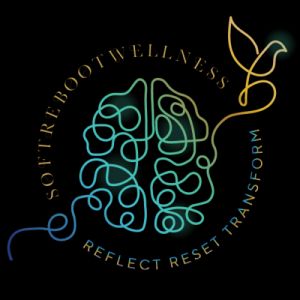Music for a Therapeutic PurposePosted by soft reboot wellness on July 2nd, 2021 Music has been part of almost every culture and the way we produce music is built into our genetics. For years even before the advent of brain imaging facilities, the health care workers always supported music therapy as a support role, in strengthening relations, assisting patients to express their thoughts in a better way, promote the way one can express his emotions, and in improving group sessions. Now in this era, with advancement in medical technology along with several pieces of research to support this idea, the benefits of music on mental and physical health have been acknowledged widely. In addition to its positive effect on emotions and mental wellbeing, music also has been found to play an integral role in enhancing physical healing. It has been demonstrated that music therapy is highly effective in patients recovering from stroke and brain injury along with patients with Alzheimer's and dementia. Singing lyrics help the nondamaged part of their brain to speak out their thoughts which eventually treats their slurred speech. According to one of the studies published in a journal of neurology, it was concluded that music can aid people in recovering from a stroke with verbal memory and maintaining focus. Furthermore, depression, low mood, and other mental health illnesses are also relieved with music therapy. Though recognizing the role of music in managing an illness is not new, recent research is exploring how music affects the brain and other body systems measurably. The available data regarding music therapy helps the practitioners now to integrate music with medicine to augment healing. Another study conducted at Johns Hopkins found out that Parkinson’s disease patients singing in groups showed improvement in their quality of life, clarity, and voice strength. The patients with several neurological diseases including Parkinson’s disease, Alzheimer’s disease, epilepsy, and stroke showed significant benefits from using music for therapeutic purposes. As one of the renowned physicians, Dr. Alexander Pantelyat M.D states: “Music has been an integral part of the human experience as long as humanity has been around. It’s been intuitively felt to have healing properties, but now we are in a position to study the mechanisms and optimize music-based interventions” Music therapy is profoundly effective in the treatment of mental health illnesses too mainly depression. Initially, music was used for therapeutic purposes to treat post-traumatic stress disorder (PTSD) in soldiers of World War 2. With time, its use was incorporated in the treatment of depression too resulting in highly positive outcomes. There is authentic evidence available suggesting music therapy for depression and anxiety. In patients with depression, music reduces muscle tension, decreases anxiety, increases self-esteem and motivation along with improving interpersonal relationships. In treatment-resistant depression, ketamine infusion is used to effectively treat the patients. At times, it is not well tolerated by the patients. However, including music therapy with ketamine infusion, the tolerability of ketamine was improved. These days, music therapy is commonly applied to patients going through a cardiac procedure or the ones recovering from a heart attack, or those trying to survive with heart failure or any other cardiovascular disorder. In one of the leading hospitals of the USA, Mayo Clinic, the healing Enhancement Program has been launched which offers music along with massage and relaxation therapies particularly for patients having heart surgery. Clinical reports suggest music helps relieve pain and anxiety. According to scientists and researchers, music can alleviate stress, gives a soothing coping mechanism, and impart a feeling of control. One of the clinical trials, including music therapy to cardiac rehabilitation proved to better control blood pressure and improving the mental and physical health of each individual as compared to cardiac rehabilitation alone. “Mozart effect” is one of the most highly broadcasted mental influences of music. In it, researchers observed that musicians have remarkable mathematical skills which lead to the conclusion that music enhances cognitive function, specifically spatial-temporal reasoning. Listening to music assists in organizing the firing of nerve cells of the region of the brain responsible for higher functions. Thus, music also acts as a warm-up exercise that activates selected brain cells so that they can work and process information effectively. Like it? Share it!More by this author |


